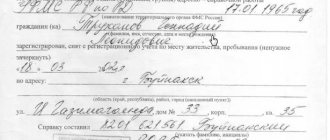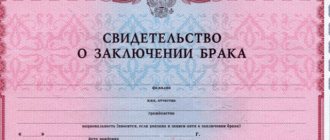The equity participation agreement (hereinafter referred to as the ESA), according to Russian legislation, gives the shareholder the opportunity to terminate it unilaterally. One desire to withdraw from the agreement and demand the money back from the developer is enough.
There can be many reasons for a shareholder: an opportunity to buy housing on the secondary market, moving to another region, unforeseen circumstances (medical expenses, family breakdown, etc.).
But more often than not, the pre-tenancy agreement is terminated for objective reasons: the quality of housing is not satisfactory, construction is delayed or suspended indefinitely.
When can a share participation agreement be terminated?
A shared construction agreement can be terminated at the initiative of both the developer and the shareholder. The first is obliged to return all invested funds to shareholders, pay compensation and moral damages. This happens if the company is experiencing financial difficulties, cannot carry out construction, or non-compliance with the terms of the contract is due to other factors.
- The developer can terminate the contract unilaterally when the other party violates the terms, for example, missed the deadline for depositing funds by two months.
- At the initiative of the shareholder, the contract is terminated if the person changes his mind about purchasing the property, experiences difficulties or cannot pay the amount under the transaction agreement. Similarly, when ] violated the deadline for delivery of the object[/anchor], you can demand termination of the contract.
- According to the law, if there are grounds for the developer’s unilateral refusal to fulfill the contract, the developer has the right to terminate the contract no earlier than twenty days after sending it in writing to the participant in shared construction.
- At the initiative of the shareholder, the contract is terminated if the person changes his mind about purchasing the property, experiences difficulties or cannot pay the amount under the transaction agreement. Similarly, when a company violated the deadline for delivery of an object, it is possible to demand termination of the contract.
Dmitry Trataevsky Project lawyer
Practice shows that termination of shared construction contracts is often accompanied by litigation. Each of the parties who has expressed a desire to terminate the contract always wants to receive not only the invested funds back, but also to receive some kind of satisfaction from their actions. On the part of the developer, these are most often conditions for terminating the contract, with additions in the form of any interest for early termination of the shared construction contract. On the part of shareholders, this is a penalty established by Federal Law dated December 30, 2004 N 214-FZ “On participation in shared-equity construction of apartment buildings and other real estate and on amendments to certain legislative acts of the Russian Federation.”
It should be noted that the initiative to terminate the contract can come from both parties - both the developer and the shareholder.
Article 9 of Federal Law No. 214-FZ “On participation in shared construction” dated December 30, 2004. anticipates any development of events.
Termination of an agreement initiated by the shareholder: reasons and procedure
The Law on the Protection of Consumer Rights provides for the ability of the shareholder to terminate the contract at any time before the delivery of the property. However, before concluding a DDU, the shareholder is strongly recommended to carefully study Article No. 9 of Federal Law-214. Here are the reasons on which it is possible, at the initiative of the shareholder, to terminate an agreement with a developer who has not fulfilled the obligations given to the former.
The main reasons why the shareholder has the right to terminate the contract and demand the return of money under the DDU, according to the law:
- Violation of quality requirements for the construction project. If, during acceptance of an apartment, for example, defects or deficiencies in the work are discovered, the shareholder has the right to demand that the defects be eliminated or the amount of payment for the object reduced to eliminate the defects. If you refuse, terminate the agreement and demand your money back.
- Failure to comply with mandatory requirements, deviation from the standards and declared characteristics of the new building. The windows are located without access to the sun, the elevator is inconvenient, etc. – a good reason for terminating the DDU.
- Late delivery deadlines. As practice shows, this is the most common reason for breaking a contract. If, after 2 months after the end of the period specified in the agreement, the shareholder has not received the keys to the apartment, he has the right not only to terminate the agreement, but also to demand payment of a penalty under it.
You can also demand termination in rare cases when the developer’s guarantee agreement with a banking or insurance company has expired, and a new agreement has not been concluded, and the equity holder has not been informed about this (grounds in Part 3 of Article 15 of Federal Law No. 214).
A claim for termination of the DDU is drawn up, which the shareholder sends to the developer’s lawyer. You should ensure that the developer's representative signs for receipt of the document.
How is it terminated?
Termination of a shared construction contract is possible as follows:
- by agreement of the parties : the shareholder may invite the developer to terminate the contract and sign a Termination Agreement (with mutual consent). It is signed by both parties and registered in Rosreestr;
- unilaterally : the shareholder can withdraw from the DDU without prior notice by notifying the developer about this in a letter (Part 4, Article 9 of Federal Law No. 214-FZ) You must indicate the reason, attach the calculation of interest and your details. Termination is registered in Rosreestr;
- in court : the list of reasons is provided for in Article 9 of the Federal Law No. 214-FZ
The decision of the shareholder to cancel the DDU may be caused by the following cases:
- gross violation of deadlines for delivery of the object; if the period is exceeded by two or more months, this is a reason to demand money;
- the terms of the contract are not met - the apartment does not comply with them and/or the requirements of technical regulations, is unsuitable for use, and has fatal deficiencies;
- the developer violated basic quality requirements;
- if at the end of the termination of the guarantee to ensure the fulfillment of obligations, a notification about this is not received and the developer does not have another guarantor;
- in other cases provided for by law or specified in the contract.
Under these circumstances, the shareholder has the right to unilaterally withdraw from the DDU, because there is a violation of his rights and interests, and demand the return of funds from the developer after registration of the Termination Agreement.
Alexander Marushchenko Senior Associate
Important: The contractual agreement is considered terminated from the date on which the party’s notice of withdrawal from the contract is sent! Within 20 working days, the developer is obliged to return the funds to the participant in shared construction and pay the penalty. There are few ideal cases. In practice, this process takes many months.
Judicial procedure for termination
This procedure for terminating DDU becomes relevant if:
- There was no mutual agreement on the need for termination.
- The developer has significantly changed the construction project.
- The purpose of the non-residential premises of the apartment has been changed.
The claim for trial must be drawn up in strict accordance with the procedural rules of civil law.
Important! A thorough study of documents confirming the legal status and economic position of developers will exclude the possibility for the shareholder to enter into an agreement with an organization that is in a pre-bankruptcy state. If the developer goes bankrupt, the shareholder is deprived of his primary right to foreclose on the collateral (an apartment under construction).
Algorithm of actions
So, how is the equity participation agreement terminated and how to return payment under the DDU? It is necessary to proceed according to the following algorithm:
- Make a proposal to the developer to terminate the DDU by mutual agreement.
- If the developer refuses, send a notice of termination.
- If the claim contains payment of a penalty, attach a detailed calculation, as well as details of where its payment should be made.
- If the contractual deadline for returning the money invested to the shareholders, as well as penalties, is violated, you will have to draw up a claim to submit it to the court.
Important! A properly prepared evidence base, as well as documentary evidence of the violated right, is the key to a decision in favor of the injured party.
If the developer ignores a court decision, the most effective and legal way to influence it is to initiate enforcement proceedings, which will be carried out at your request.
How to return an apartment to the developer?
But is the developer always wrong? And is it possible to return the apartment to the developer if the shareholder has violated his obligations?
As a general rule, if the next payment does not arrive in the developer’s bank account for more than 2 months, or the shareholder has violated payment deadlines three times, the developer can terminate the DDU agreement at his own discretion.
To do this you need:
- Warn the shareholder about this in writing.
- If payments are not received within a month, the shareholder is notified that the agreement has been terminated unilaterally.
- From the moment the contract is terminated, the developer has an obligation to return the money invested to the shareholder.
- If the shareholder does not apply to receive the money, the money is transferred to a deposit.
It is no secret that monitoring the fulfillment of contractual obligations on the part of the developer will greatly increase the chances of obtaining the desired result (an apartment), or will make it possible to promptly identify a violation of the terms of the contract by the developer and return the invested money, while receiving a penalty and compensation.
Transfer the authority to monitor the contract to legal professionals, and you will receive not only financial and legislative guarantee of your rights, but also good sleep and a good mood.
Author: Bogdanova Irina Mikhailovna.
Lawyer for shared construction matters. Leading lawyer of the consumer rights protection society “Legal Supervision” on real estate and shared-equity construction issues. A lawyer with more than 15 years of experience, most of which involved resolving complex issues with real estate, as well as problematic developers. Provides legal support both in court and pre-trial on issues of equity participation. Thanks to his work, several thousand legal conflicts were resolved, many of which were resolved without resorting to litigation.
How to act if you want to terminate a contract for participation in shared construction
The procedure is as follows:
- You are convinced of your desire to terminate the contract, send a refusal to fulfill the contract to the developer and patiently wait for the expiration of the 10-day period. The developer should send you a response. Often this does not happen or you receive an unreasonable refusal.
- If the money is not returned within the agreed period, you can file a complaint with the court, demanding the return of the invested funds, compensation for penalties, fines, penalties, and moral damages.
- The claim is accompanied by documents confirming your case, copies of the claim (if any) that was sent to the developer.
- The court considers the application and, depending on the requirements contained in the statement of claim, will oblige the developer to pay penalties, fines and compensation for moral damage.
Dmitry Trataevsky Project lawyer
Practice is rich in examples where, when terminating a shared construction agreement, people waited for years for a return on the funds invested in construction, not to mention compensation for moral damages and payment of penalties by the developer. In most cases, this is due to the bankruptcy of the developer. This procedure is regulated by Federal Law No. 127-FZ of October 26, 2002 “On Insolvency (Bankruptcy)”. Based on this unpleasant practice, before terminating a share participation agreement in construction, it is worth thoroughly weighing the pros and cons, and, if possible, finding other ways out of a specific situation.
How to recover money from an unscrupulous developer through court?
If the shareholder has previously paid part of the amount, then he has the right to demand a refund upon termination of the DDU. According to the obligations, the contractor must transfer the amount to the customer no later than 20 days after the termination of contractual obligations. This takes into account the period of 10 days for the court decision to enter into force. The developer also undertakes to compensate interest for the use of the funds raised by the shareholder. The amount of the fine is set by the Central Bank of the Russian Federation. If the shareholder is an organization, then the interest payment is made in a single amount, but if it is an individual, then the amount is doubled.
How to force the developer to return the money?
There are several ways to force the developer to return money under a shared construction agreement, the easiest of which is an agreement between the parties to terminate the contract, which specifies all the conditions for the return of money.
The second way is through the court - if, for example, the developer violates deadlines or reduces the declared area or design documentation. In such cases, you can safely go to court. But before you do this, you need to follow a certain order:
- Drawing up a complaint to the developer;
- Drawing up a statement of claim (in parallel, it is necessary to submit complaints to regulatory authorities). If you need to write a response to a statement of claim for consumer protection. Read how to do this at the link;
- Waiting for a court decision;
- After a court decision, obtaining a writ of execution and forced collection;
The third way is to withdraw from the contract in accordance with the consumer protection law.
USEFUL: read recommendations for filing a lawsuit against a developer
We are writing a complaint
The claim must be submitted in writing and preferably in one of the following ways:
- Hand over personally to the developer's official, the claim is prepared in 2 copies - one for the developer, on the second copy the developer's official puts a mark of acceptance, indicating the full name of the official who accepted the claim, his position, and the date of acceptance of the claim.
- The claim can be sent by mail, registered mail with notification and a list of attachments. In any case, it should be remembered that the mandatory claim procedure is Federal Law dated December 30, 2004 N 214-FZ (as amended on July 13, 2015) “On participation in shared-equity construction of apartment buildings and other real estate and on amendments to certain legislative acts of the Russian Federation.” Federation" (as amended and supplemented, entered into force on October 1, 2015), not established. To submit a claim before going to court, unless otherwise provided by the contract, is the right of a participant in shared construction
Unilateral termination of the contract by the shareholder
If the house is not put into operation on time or the apartment has significant deficiencies, the shareholder has the right to terminate the DDU agreement unilaterally. However, desire alone is not enough; the buyer must comply with the legal procedure for terminating the transaction.
First of all, the shareholder needs to send a claim to the developer to terminate the contract. The text of the document indicates: 1) The reason for termination of the contractual relationship (with reference to the legislative norm). 2) Requirements of the applicant (shareholder). 3) Bank details to which the developer must return the funds.
The claim must be sent to the legal address of the company by registered mail with notification or personally bring it to the office. The notification must be accompanied by a list of attachments - a document that lists and describes the legally important characteristics of the letter. If the notice is handed over personally to a representative of the construction company, it is recommended to insist that the person who receives the correspondence put the incoming number, date and signature on the second copy of the appeal.
The day of termination of the DDU agreement is considered the day the claim is sent (grounds: Part 4, Article 9 of Law No. 214-FZ). From this moment on, the developer is obliged to return to the counterparty all funds, which are the contract price and interest for use, within 20 days.
If the developer refuses to transfer funds in a timely manner, the shareholder has the right to go to court. To do this, he will need to collect the necessary package of documents: 1) A copy of the DDU agreement 2) Documents confirming the fact of payment of funds under the agreement 3) A copy of the claim to the developer (the plaintiff also needs to confirm the fact of transfer of this document. If the claim was sent by registered mail, you must attach a postal notification on receipt of correspondence. If personally handed over to a company employee - incoming number and registration date) 4) The developer’s response to the claim (if any) 5) Documents that confirm (justify) the shareholder’s claims (defective statement, conclusion of an expert commission on the presence of deficiencies) 6) Calculation of interest for the use of money and for violation of deadlines for the return of funds 7) Receipt for payment of state duty. In accordance with paragraph 3 of Art. 333.36 of the Tax Code of the Russian Federation, state duty is paid if the cost of the claim exceeds 1 million rubles
The DDU agreement will be considered terminated if the court sided with the plaintiff.
Judicial procedure for termination of a pre-employment contract
Federal law establishes 2 options for terminating a contract at the initiative of a participant in shared construction. A participant in shared construction has the right to unilaterally refuse to fulfill the contract or, at the request of a participant in shared construction, the contract can be terminated in court.
Sometimes the opportunity to terminate a DDU is provided only through the court. Federal Law No. 214-FZ contains a list of cases when an unscrupulous developer violates the fundamental provisions of the contract:
- if construction is suspended or terminated, there are facts and circumstances indicating the impossibility of full fulfillment by the developer of his obligations - transfer of the apartment to the shareholder on time;
- if the developer changed the design documentation, which led to significant changes, the apartment acquired different parameters;
- if the developer has changed the purpose and/or area of the common property, non-residential premises of the building;
- in other cases established by agreement or law.
These cases characterize and demonstrate the developer’s dishonesty, infringement of the interests of the shareholder and are a legal basis for going to court.
They can go to court even after the conclusion of the agreement, if the party that unilaterally withdrew from the DDU does not repay the debt on time.
Termination by mutual agreement
Termination of a DDU by agreement of the parties is a common practice and convenient for the shareholder. It happens like this:
- The party that wants to refuse to fulfill obligations under the equity participation agreement notifies the other party.
- If there are no obstacles, then the time and place for drawing up a special agreement is determined.
- The agreement document determines the date of termination of the contract and the terms and methods of reimbursement of financial obligations from the developer to the shareholder.
- The parties are sent to Rosreestr, where they register the termination of the DDU on the basis of the drawn up agreement.
For official authorities, you will have to submit not only the agreement itself, but also copies of the DDU, the shareholder’s passport, a copy of the receipt for payment of the state duty in the amount of 350 rubles, other documents - usually copies of payment orders and confirmation that the shareholder has paid the price of the agreement or part of it. Leave copies of these documents in case of claims from Rosreestr.
What interest and what will the developer pay for?
The procedure for returning the invested money depends on the method of termination of the DDU.
What can a shareholder expect:
- return of the invested amount;
- interest on the use of funds;
- penalty (in case of delay in delivery of the object);
- moral damage;
- rent for forced and unforeseen rental housing;
- full or partial payment of legal costs.
Alexander Marushchenko Senior Associate
According to Part 6 of Article 9 No. 214-FZ, in addition to the return of money paid by the shareholder under the contract at any stage of construction, the developer is obliged to pay interest for each day of use of this amount! In fact, he was given a loan for construction. The calculation is based on the refinancing rate (key rate) of the Central Bank of Russia and the amount payable for each day from the moment the money is transferred to the developer is calculated. If the shareholder is a citizen, then 1/150 of the rate, if a legal entity, then 1/300 of the rate.
Sometimes the developer meets halfway by concluding a settlement agreement, but such cases are rather the exception.
Case study ⚖
Case study:
On December 1, 2014, the shareholder, according to the agreement, paid 3,500,000 rubles.
On December 1, 2021, the contract was terminated.
The key rate in 2021 is 10%, the developer had the money for 2 years or 730 days.
We calculate using the formula:
(amount under the agreement * number of days * rate in%)/150.
(3 500 000 * 730 *10%)/150 = 1 703 333,33
Having invested 3,500,000 rubles in shared construction, the shareholder has the right to demand more than half a million rubles as interest for the use of his funds.
In most cases, this does not happen. Developers are in no hurry to pay such compensation, convince shareholders to “wait a little longer,” do not sign an agreement to terminate the DDU, or simply ignore it.
A one-way exit is possible, but the fulfillment of the developer’s duties is complicated. We must go to court, declare a violation of rights and demand legal payments.
Important: if the shareholder terminates the share participation agreement, he is not required to pay any fines!
The equity holder needs to prepare for litigation, so it is better to conduct all communications with the developer in writing, keeping copies for yourself - this will be more reliable. The trial can last several months, but you can receive not only the amount paid, but also various penalties, penalties, fines, as well as moral and material damage, if all this time you had to huddle in a rented apartment.
The DDU participant may refuse the contract if the object does not meet quality requirements, as well as in other cases when the developer violates the terms of the contract.
Dmitry Trataevsky Project lawyer
Practice shows that when a participant in shared construction files a claim in court to terminate a contract with a developer, shareholders often ask the court to oblige the developer to compensate them for costs associated with the latter’s violation of the terms of the contract. Participants in shared construction also include forced expenses for paying rent. However, it is worth remembering that if there is a risk of not getting housing within the period established by the contract and renting housing cannot be avoided, then it is necessary to draw up an official housing rental agreement, which will also include payment documents. These documents will subsequently need to be submitted to the court as evidence of losses incurred by the shareholder.
○ Interest for using money.
In addition to the return of the amount contributed to the construction share, upon termination of the DDU, you have the right to receive compensation for the use of your financial resources. This is a percentage of 1/300 of the key rate and its calculation begins with the first contribution. The amount due for refund is calculated using the formula:
St+[St*{D*Ks/300/100}]*k1 = C, where:
St – deposited amount;
D – the number of days from the date of deposit of money until the moment of termination of the contract;
KS – the key rate of the Central Bank in a given period;
K1 is a coefficient that is set as 1 if we are talking about a legal entity and as 2 if the shareholder is an individual.
What to do to get your money
If the developer has suspended or frozen construction, there is a danger that his financial situation has worsened. In this case, even a court decision in your favor is not a guarantee of a quick refund .
Alexander Marushchenko Senior Associate
Collect available information about his solvency, guarantors, insurance, relationships with tax authorities, constructed facilities and new projects.
If the financial situation is unstable and there is a possibility of bankruptcy, shareholders receive money in third place (after payments to citizens who suffered health damage and salaries to employees). More often than not, equity holders do not get anything, because... DDUs are concluded by subsidiaries created by construction holdings for a specific project. They only own office equipment and non-essential assets.
If the developer, for objective reasons, is experiencing temporary difficulties, there is no need to rush into terminating the DDU: you could be left without money and an apartment. Preparing to file a claim, collecting documents, scheduling a court hearing, making a decision and its execution will take a lot of time and money. Sometimes it makes sense to wait a little and move into the long-awaited apartment.
If the developer does not have financial problems, he has redirected funds to another project, or construction is proceeding at an unplanned pace, or significant changes have been made to the project - it is necessary to collect evidence, photo and video materials, expert opinions, correspondence with the developer, information about/from him in the media , Internet, from other verified sources. These are the necessary materials for drawing up a justification for the request for termination of the DDU.
Claim to the developer for the return of money to the shareholder
What to do if the developer does not return the money?
Very often there are cases when the contractor evades fulfillment of obligations and refuses to return contributions to the customer in case of violation of contractual obligations. In this case, the shareholder is recommended to file a claim addressed to the violator with a detailed statement of all the circumstances:
- period for signing the contract (day, month, year);
- when the DDU was terminated;
- the date when he demanded a refund and other circumstances.
How can a developer terminate an equity participation agreement?
Can the developer terminate the share participation agreement? If the shareholder does not make a timely payment of funds under the transaction, the desire of the developer is obvious - the company relies on these funds when purchasing materials and hiring labor. An agreement can be concluded between the parties if the developer is willing to wait for some time. When a settlement agreement is not reached, the developer should wait two months and terminate the contract.
The shareholder or the developer can terminate the contract at any time; all that is required is to send a notice to the other party with the reasons for the unilateral refusal. In practice, deal termination is more common when one party violates the terms. You will definitely get your invested money back, compensation and penalties if the truth is on your side.
Contractual obligations of the developer
An equity participation agreement is a legal document that provides contractual guarantees and the rights of shareholders and the developer. Such an agreement is designed to eliminate fraud in the field of shared-equity construction.
Since the purpose of the money invested by all shareholders for the construction of a high-rise building is to obtain housing suitable for the intended use, only he bears the obligations after the money is received in the developer’s bank account. The responsibility falls on his shoulders to complete the construction within the time period established by the contract and transfer a specific apartment in the constructed house to a specific shareholder. Therefore, as a rule, the initiator of termination of the DDU is the shareholder if the developer begins to violate its terms.
Refund of money during shared construction: how much can a participant return?
Shared construction provides an opportunity to profitably buy real estate, but does not eliminate certain risks.
Most often, problems arise with the developer, for example, the property was not delivered on time or the quality of the housing does not correspond to what was declared. In any case, in order to make shared construction less risky for participants, the law provides for a number of guarantees. For example, if the contract is terminated, the participant can count on a refund of money during shared construction.
Are termination penalties legal?
In an effort to protect themselves, developers often include various conditions in the DDU that do not comply with the law. The clause on the payment by the shareholder of certain penalties in the event of termination of the contract on his initiative refers to such provisions. It directly contradicts Law No. 2300-1, and Art. 14.8 of the Code of Administrative Offenses of the Russian Federation for the inclusion in an agreement of conditions that infringe on the rights of the consumer establishes a penalty in the form of a fine.
If the developer officially refused to terminate the contract or, as happens more often, did not respond to your notice, demanded that you pay a fine, or transferred money to you minus penalties, you have the right to demand termination of the transaction and recovery of funds through the court. In addition, you receive grounds for filing complaints with the prosecutor's office and Rospotrebnadzor for violations of your legal rights.
Note!
In court, you have the right to demand reimbursement of funds paid, interest, penalties for late fulfillment of your requirements, damage caused to you by the actions of the developer, including legal costs, which include the cost of hiring a lawyer, and moral damages.
Art. 32 of Law No. 2300-1 requires payment by the customer (shareholder) of expenses actually incurred by the contractor (developer). However, to justify this amount, the company will have to separate the costs of your apartment from the total costs of the house and confirm them with calculations and documents. In reality, this is almost impossible and almost never happens in practice.
In addition, the developer will still sell your former apartment and compensate for the costs. Therefore, the money must be returned to you in full with all interest and penalties.
Return the apartment by agreement of the parties
This is the simplest and most good-natured way to return the apartment to the Developer, and return the money to yourself in the case when the builders behave well, there is nothing to complain about, but due to personal (family, financial, etc.) circumstances, the apartment in the new building must be abandoned.
An example of returning an apartment to the Developer by agreement.
The shareholder bought a 1-room apartment in a building under construction. The construction proceeded as usual, the Developer did not violate the terms of the contract, and there were no complaints against him.
But while construction was underway, the Buyer’s family circumstances changed, a child was born in the family, and it was decided to take a 2-room apartment instead of a 1-room apartment. But what to do with the one-room apartment already purchased in a new building?
The developer understood the situation and met the shareholder halfway. The agreement for the 1-room apartment was terminated by agreement of the parties (the apartment was returned to the Developer), and a new agreement for the purchase of a 2-room apartment was immediately concluded.
The same can happen if during construction the Buyer’s income has increased significantly and he decides to buy a larger apartment. Then, again, by agreement with the Developer, the purchased apartment is returned to him through termination of the contract by mutual agreement.
The agreement may be such that the Developer voluntarily agrees to take the apartment back, but with the condition of a discount in price (“for trouble”). That is, if the shareholder bought an apartment, relatively speaking, for 100 rubles, then the Developer gets it back for 90 rubles. (the discount is issued, for example, in the form of a fine or penalty). And the shareholder, for example, buys another apartment from another Developer for 150 rubles.
This possibility, of course, depends on the Developer’s marketing policy and its current financial condition.
Distribution of tax deductions between spouses when purchasing an apartment - how does this happen?
Mandatory conditions for terminating the contract and returning the apartment
According to the law, it is possible to terminate a DDU only if it has been registered with Rosreestr (since it is considered concluded only after its registration). The very fact of its termination is also registered in Rosreestr.
If termination occurs out of court, by written notification to the Developer of a unilateral refusal to fulfill the contract, then the contract is considered terminated from the date of sending this notice (clause 4, article 9, Federal Law-214). But you still need to register the termination.
An application for registration of termination of the DDU is submitted (to Rosreestr or MFC) along with a copy of the notice sent to the Developer.
At the same time, you need to remember that this whole scheme with the return of the apartment through the termination of the DDU with the Developer only works until the completion of construction and transfer of the apartment to the shareholder.
You can read more about the procedure for terminating the Equity Participation Agreement (EPA) in a separate note at the link.
Is it possible to return personal income tax for the purchase of an apartment if it has already been sold - see the answer at the link.
Termination of the mortgage agreement by agreement of the parties
Much more often, shareholders get their money back after terminating the contract through the court.
In practice, developers try to avoid returning money
, either delay the return period, or keep part of the money in the form of a fee. And in this case, contacting a lawyer helps resolve the problem in the best possible way.
A lawyer will be able to competently collect evidence of the developer’s failure to fulfill its obligations and draw up a notice of termination of the contract in accordance with all the rules. If necessary, a lawyer will represent the interests of the shareholder in court.
Each case of termination of a contract with a developer is special; we approach the problem of each of our clients with full attention and professional sensitivity. If you need a really good and experienced lawyer, then in our legal center you will find just such specialists.
Do you want to terminate the contract with the developer and get your money? We are waiting for you, call: +7 (8442) 43-66-11
Law No. 214, the shareholder only needs to send the developer a written notice of termination of the contract. The fact of non-receipt of the letter does not affect the termination of the contractual relationship. Within 20 working days, the developer returns the money and interest for using it. If the funds are not transferred within the specified period, the shareholder has the right to recover the money through the court. The claim may also include a demand for penalties. ✔ By agreement of the parties. This is the most acceptable option to terminate the deal. How does this happen?
- If the counterparties agree to terminate the relationship, the grounds do not matter. One of the parties has the right to send a proposal to the other party to terminate the agreement.
- Within a month or within another period specified in the offer, the other party must accept the offer or refuse it (clause 2 of Art.
Termination of contract by agreement of the parties, refund of money
During the negotiations, it became clear that it was impossible for her to conclude an agreement directly with him. D. was sent by the Developer to the office of a certain company, whose representatives confirmed that it was possible to purchase an apartment in the specified area in houses under construction only through their company. As a result, D. was forced to enter into forced, actually unnecessary services for selecting and booking an apartment, paid consultations, “assistance” for state registration of an equity participation agreement. And only after paying for all the listed services, the developer entered into a contract with her for the selected object. For her part, citizen D.
What difficulties await a shareholder when terminating a trust agreement?
Federal Law No. 214-FZ of December 30, 2004 provides for the procedure and terms for the return of paid funds:
- if unilaterally - within 20 working days from the date of termination of the DDU;
- in the case of a judicial order - within 10 working days from the date the court decision enters into legal force.
In addition, the developer pays interest on the use of funds equal to 1/300 of the refinancing rate of the Central Bank of the Russian Federation, if the other party to the DDU is a citizen - in the amount of 1/150 of the rate. Their accrual begins from the day the shareholder pays the funds at the contract price and ends until the day they are actually returned.









